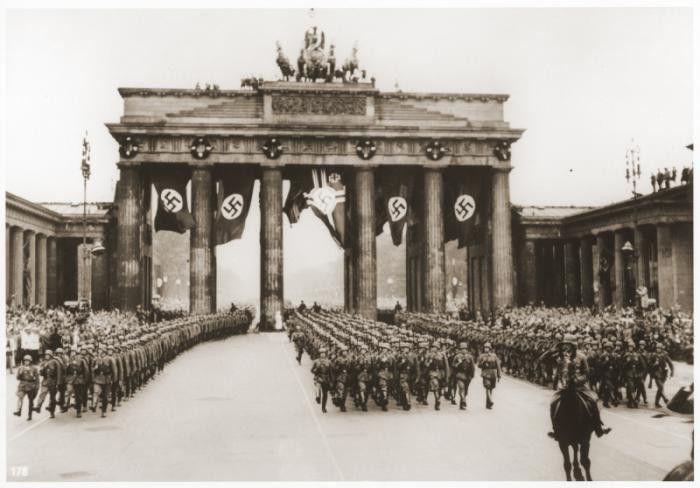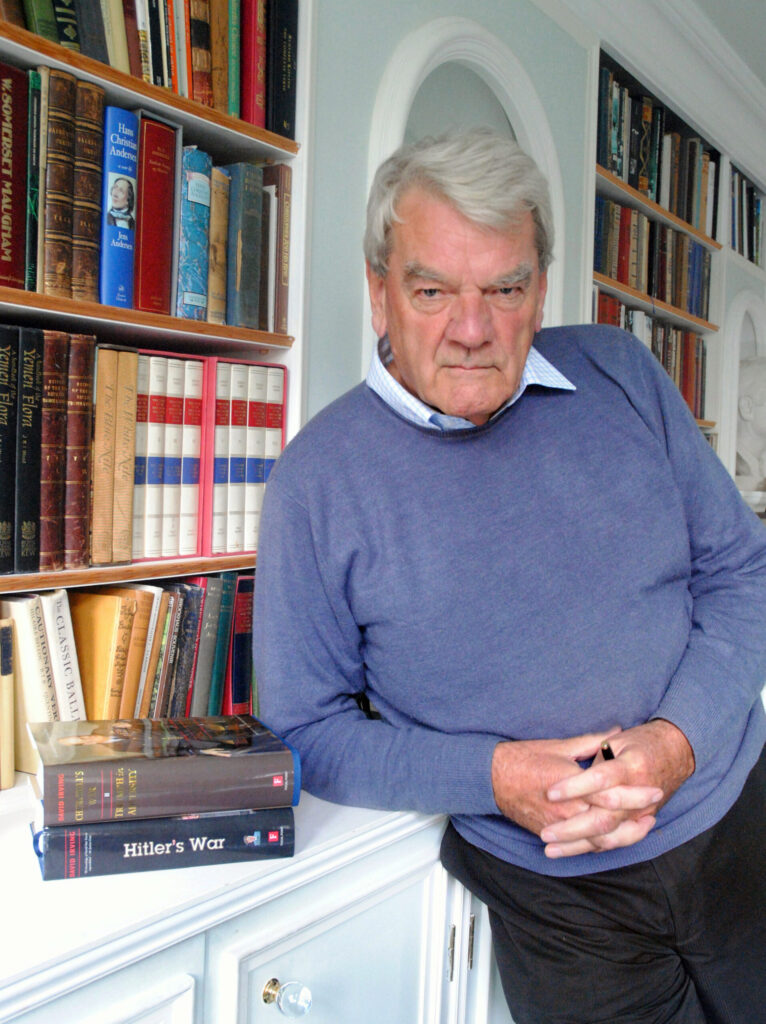WWII Revisionism, Holocaust Denial, David Irving and the Future of the American Right

With Trump’s second term secured, the Right as a political force could be on the verge of a new metamorphosis. A large part of Trump’s success has been in forming a coalition between regular Republican Party members, disaffected middle class voters, and libertarian minded dissidents.
The differences between these three groups on certain issues are substantial, but a sort of unspoken agreement seems to have been made to work together and prevent the Democrats from getting another presidential term. The containment of woke ideology in particular seems to have been a rallying flag on which all three groups agreed to work together on. Even though that battle is not yet finished, the general feeling seems to be that Trump’s second term represents a crucial turning point; all that is left to do now is sow the fields with salt.
However, cracks are starting to show in the coalition Trump helped to craft.
One of these differences was recently highlighted in the debate that took place between David Smith and Douglass Murray on the The Joe Rogan Experience podcast. Murray in particular was troubled that an individual by the name of Darryl Cooper was being platformed and allowed to spread his views on podcasts like Rogan’s and Smith’s. Murray believes that the Right has finally gained mainstream acceptance, and he does not wish to see this gain squandered by allowing such things as Holocaust denial to gain footholds on the Right.
I find his concerns to be valid enough, it seems prudent for every movement to once in a while do a little housekeeping and make sure their house is in order. With that in mind let’s look at Cooper’s views.
Who is Darryl Cooper?
I only found out about Cooper after his Carlson interview last year. It’s no understatement to say that everyone talked about that interview, especially on X, even European and Australian media reported on it. It garnered so much attention mostly due to the controversial statements Cooper made in regards to Churchill – among others. Facetiously, Cooper expressed his belief that Churchill, not Hitler, was the main villain of WWII.
This naturally led to accusations that Cooper is a Nazi apologist and Holocaust revisionist or denier.
From what I have seen of Cooper and his work, in my opinion the majority of attacks against him are overly exaggerated. I do believe he has good intentions and works hard to find the historical truth in any subject he chooses to examine. It’s clear that many people find this type of WWII revision dangerous, but there is a subgroup that has emerged on the Right that is hungry for more than a simple reductionist history of the Allies were the heroes and the Axis powers the villains. Murray in particular seems to believe that this revisionism can easily lead to Holocaust denial.
My criticism of Murray’s arguments is that criticism of Churchill is not the same thing as Holocaust denial, but Murray seems to conflate the two. At a certain point during the podcast, Murray clarified his argument and claimed that Cooper’s views on Churchill are simply the rehashed, debunked, views of historian David Irving, and since Irving was a Holocaust denier, using his arguments inevitably leads to Holocaust denial. Again I am unconvinced; it’s totally plausible that a person might accept Irving’s views on Churchill and reject any views on Holocaust denial, which is what Cooper seems to be doing.
And since Murray brought up Irving, we should talk about him also.
David Irving

I confess that I only discovered David Irving less than a month ago, so take that for what you will. Whatever your opinion of him is or ends up being, he has a fascinating story.
Raised in England, he dropped out of university because he couldn’t afford tuition; next, he went to Germany to work as a steel worker and thus refined his German. He used this fluency in German to write his first book, The Destruction of Dresden, which drew inspiration from interviews he conducted of people that survived the bombing along with original source documents he obtained. He wasn’t the first to write a history from the German perspective, but he was the first to couple this perspective with first hand resources that gave his work a unique perspective and feel. The book gained acclaimed praise and became a bestseller, launching his career as a historian. He parlayed this formula to write more successful books on other WWII topics and figures, the defining characteristic of his books always being the research that drew on his ability to unearth previously undiscovered documents in archives all across the world.
Gradually, Irving also acquired a reputation as a Holocaust denier, which was firmly cemented when he lost a libel case in a British court on April 11, 2000. Bankruptcy quickly followed and all his books stopped being published. His reputation was shattered and as Murray clearly demonstrates, it’s anathema to cite any of Irving’s work today.
I’m not going to defend Irving from accusations of Holocaust denial, as I said I only recently discovered who he was. And truth be told I don’t find the topic that interesting. Irving’s main claims in regards to the Holocaust seem to be that the number of Jews killed is somewhere between 1.5 to 3 million killed, not 6 million, which is the traditional number cited. He also disputes Hitler’s involvement and knowing of the systematic killings. So to me, arguing over what the most accurate figure is misses the bigger point: which is, it’s tragic that Jews were scapegoated and systematically killed, just like I think it’s tragic to drop a nuclear weapon in a densely populated area.
What I am most interested in, is Irving’s other works which bring unique insight on how Hitler’s Third Reich worked on an operational level. Unfortunately, the censors have been rather successful; if someone wants to obtain copies of Irving’s books, they are going to have to spend hundreds of dollars to get used copies on Amazon.
Hopefully I will eventually get a copy in my hands, at this point I want to consume his work for no other reason than the establishment has made it clear you are not supposed to.
Conclusion
I hope to have provided some proper context and background so you the reader can better understand the significance of the Smith v. Murray debate in regards to WWII revisionism.
It’s significant because either the side that Murray represents will continue to dominate on the Right, and US foreign policy will largely remain the same, or the side that Smith represents will gradually become the dominant one, in which case US foreign policy would most likely drastically change.
Cooper’s recent success, as evidenced by his podcast’s rise on Spotify charts, clearly has Murray perturbed. I suspect that he envisions a worst case scenario where Cooper’s continued rise leads to a further erosion of support for Israel on the Right. If that would occur, continued US support for Israel would be a dubious proposition as popular support would be compromised from both the Democrat and Republican sides.
I have no idea how this will play out in the future, but the stakes are high.